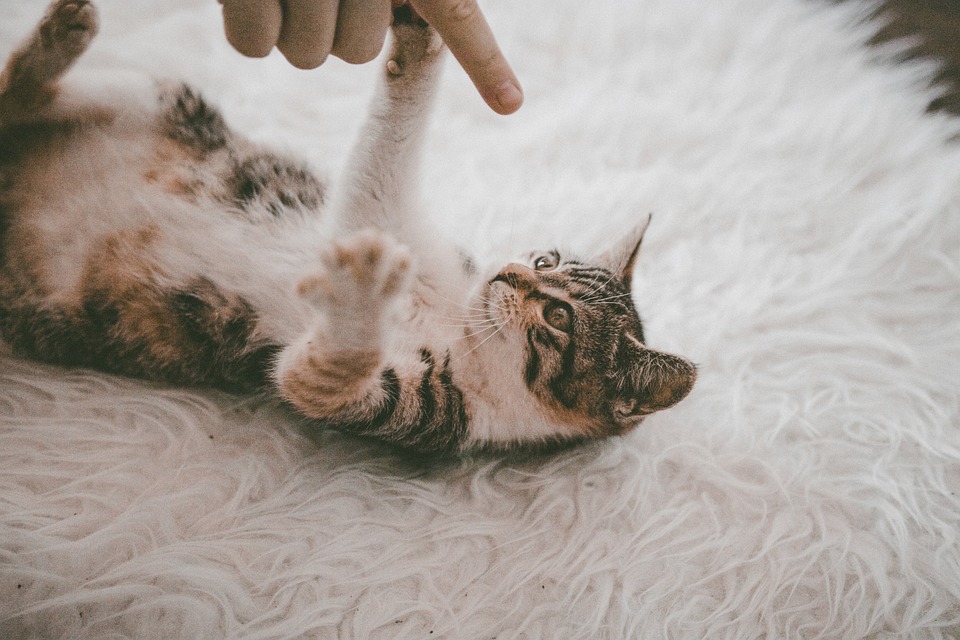Cats, with their curious and playful nature, can often experience eye irritations. For felines with sensitive eyes, these irritations can be more frequent and bothersome. In this article, we will explore effective strategies to prevent and manage common eye irritations in cats with sensitive eyes, ensuring their ocular health and overall well-being.
Understanding Sensitive Eyes in Cats
Firstly, it is important to understand the signs of sensitive eyes in cats. Some common indicators include excessive blinking, watery or teary eyes, redness or swelling around the eye area, and squinting. It is crucial to identify these signs early on to prevent further discomfort or potential complications.
There are several causes of eye irritations in cats, including allergies, infections, foreign bodies, and underlying health conditions. Allergies can be triggered by environmental factors such as pollen, dust, or certain cleaning products. Infections can occur due to bacteria, viruses, or fungi. Foreign bodies, such as dust particles or eyelashes, can also cause irritation. Additionally, certain health conditions like dry eye or conjunctivitis can make cats more prone to eye irritations.
The Importance of Proactive Eye Care
Proactive eye care is essential for cats with sensitive eyes. Regular monitoring of their eye health and addressing any issues promptly can prevent complications and discomfort. It is crucial to schedule regular veterinary check-ups to ensure their eyes are in good condition and to detect any potential problems early on.
Preventive Measures for Cats with Sensitive Eyes
There are several preventive measures that cat owners can take to protect their feline companions’ sensitive eyes.
Firstly, a regular grooming routine is important. This includes gently cleaning the eye area with a damp cloth to remove any debris or discharge. Trimming excessive facial hair can also prevent irritation caused by hair rubbing against the eyes.
Environmental considerations are also crucial. Minimizing exposure to irritants such as smoke, strong odors, or chemicals can help reduce the risk of eye irritations. Additionally, maintaining a clean living environment, including regularly cleaning litter boxes and bedding, can prevent the buildup of allergens and irritants.
Proper nutrition and hydration are also vital for eye health. Providing a balanced diet that includes essential nutrients can support overall eye health. Ensuring that your cat has access to clean and fresh water at all times is also important to prevent dehydration, which can contribute to eye dryness and irritation.
Managing Common Eye Irritations in Cats with Sensitive Eyes
If your cat does experience eye irritations, it is important to consult with a veterinarian. They can properly diagnose the issue and recommend appropriate treatment options. In some cases, eye drops or ointments may be prescribed to alleviate discomfort and treat the underlying cause of the irritation.
For mild irritations, there are also natural remedies that can provide relief. These include using chamomile tea bags as warm compresses to soothe the eyes or using a saline solution to rinse the eyes gently.
Lifestyle adjustments can also help manage eye irritations. Reducing stress levels can have a positive impact on overall eye health. Providing a calm and stress-free environment for your cat can help alleviate eye irritations. Additionally, limiting exposure to bright lights or direct sunlight can also reduce eye strain and discomfort.
Frequently Asked Questions (FAQs)
Q1. Can I use human eye drops on my cat with sensitive eyes?
It is not recommended to use human eye drops on cats without consulting a veterinarian. Cats have different eye structures and their eyes may react differently to human eye drops. It is best to seek professional advice for proper treatment options.
Q2. How can I tell if my cat’s eye irritation requires immediate veterinary attention?
If your cat’s eye irritation is accompanied by symptoms such as severe redness, swelling, discharge, cloudiness, or changes in behavior, it is important to seek immediate veterinary attention. These signs could indicate a more serious underlying condition that requires prompt medical intervention.
Q3. Are there any home remedies I can use to alleviate my cat’s eye irritation?
There are some natural remedies that can provide temporary relief for mild eye irritations, such as using warm chamomile tea bags as compresses or rinsing the eyes with a saline solution. However, it is always advisable to consult with a veterinarian before trying any home remedies.
Q4. Can certain cat breeds be more prone to eye irritations?
Yes, some cat breeds may be more prone to certain eye irritations. Breeds with flatter faces, such as Persians and Exotic Shorthairs, are more susceptible to eye irritations due to their facial structure. It is important to be extra vigilant with their eye care and seek veterinary advice if needed.
Q5. Is it possible to prevent eye irritations altogether in cats with sensitive eyes?
While it may not be possible to prevent eye irritations altogether, implementing preventive measures such as regular grooming, maintaining a clean environment, and providing a balanced diet can significantly reduce the risk of eye irritations in cats with sensitive eyes.
Conclusion
By understanding the unique needs of cats with sensitive eyes and implementing preventive measures, we can effectively manage and prevent common eye irritations in our feline companions. Regular veterinary check-ups, proper grooming, and a safe living environment will ensure their eyes stay healthy and vibrant. Remember, a little extra care goes a long way in safeguarding your cat’s ocular health.








